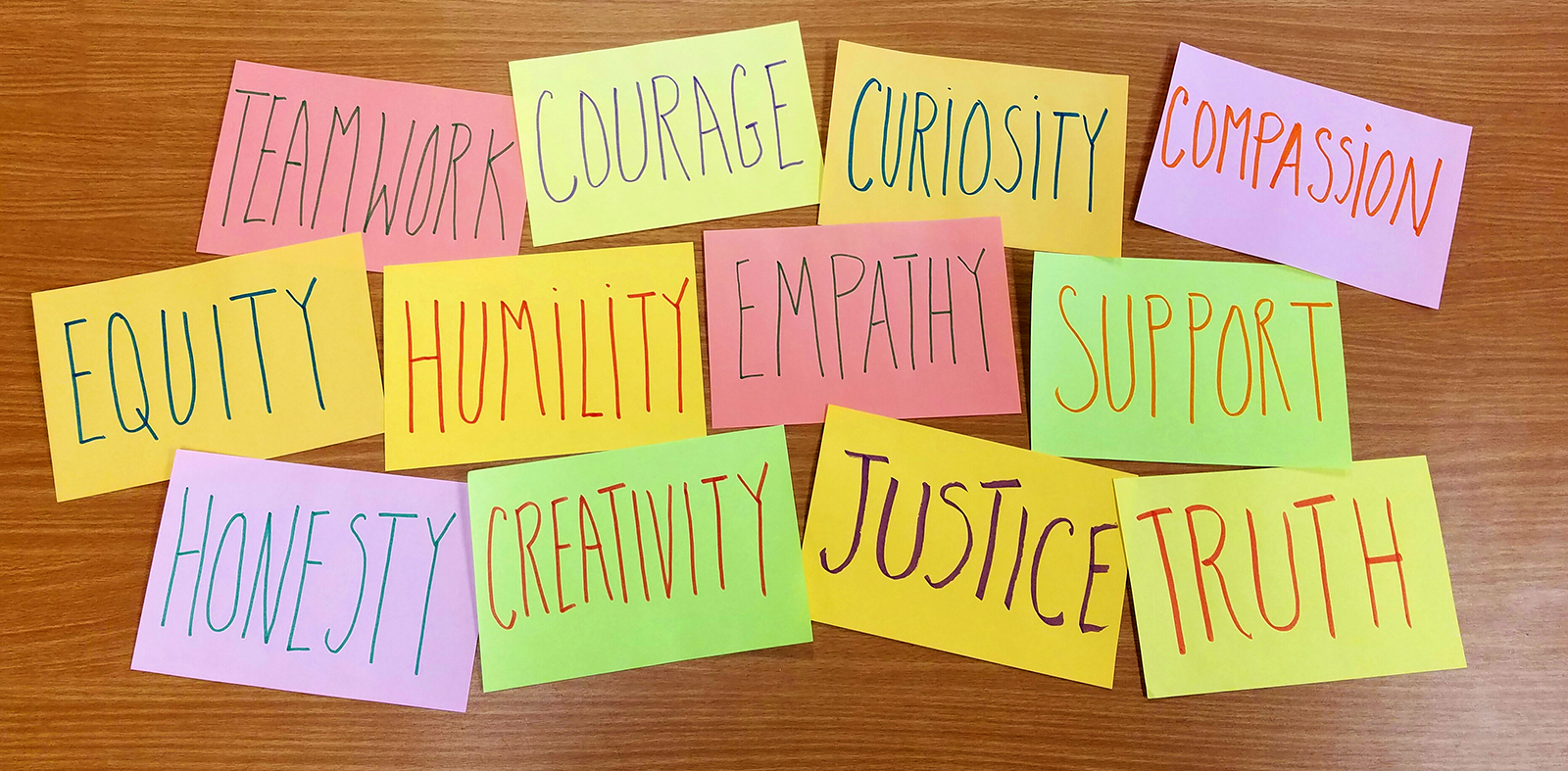
Restorative practices are a set of processes and tools that help us create a caring school community and keep that community whole. The premise is that people and relationships are valued first and foremost. When people make mistakes or cause harm, restorative practices can help them to understand the impact of their actions, heal the harm, and restore the community.
Restorative practices are incorporated into every Morningside Center program, including:
- The 4Rs (Reading, Writing, Respect & Resolution) for grades PreK-5
- C Squad: Together for the Journey for grades 6-8
- Building Belonging for grades 6-12
- Restore360, our whole-school SEL/restorative practices/racial equity program, PreK-12
Restorative practices offer a positive alternative to the punitive forms of discipline that can lead to the disproportionately harsh discipline of students of color. They enable both young people and adults to:
- strengthen their sense of connection with each other, creating a more kind and productive classroom and school
- bolster their social and emotional skills and their cultural and racial awareness
- develop skills to resolve conflicts and problem-solve, and repair harm in restorative ways rather than impose punishment
Morningside Center is the New York City Department of Education’s lead partner in introducing restorative practices into NYC public schools. We have provided our five-day introductory training and coaching to hundreds of schools, as well as advanced training in restorative interventions and promoting racial equity. Schools that have received training and coaching in restorative practices have seen their school climate improve and suspensions drop precipitously.
Our restorative strategy in schools includes these components:
- Training and coaching for school staff in social and emotional learning (SEL) and restorative practices to prepare them to facilitate, or “keep,” daily or weekly restorative circles for all students using one of Morningside Center's curricula (The 4Rs, C Squad, or Building Belonging).
- Participation in restorative circles for all students to both build community and strengthen social and emotional skills. Restorative circles use a highly structured process – including sitting in a circle around a meaningful “center piece” (a selection of words and/or objects that are meaningful to the group), passing a “talking piece” to speak, and using opening and closing ceremonies to set the circle apart from other spaces in our lives. Over time, the circle becomes a community where everyone feels heard and valued. In this setting, using an age-appropriate curriculum, young people and adults develop and practice social and emotional skills such as understanding and managing feelings, relating well to others, appreciating differences, and dealing well with conflict. These skills are the very ones needed to prevent conflicts, mistakes, and harm from occurring. But they are also the ones needed to respond to them in a constructive, restorative way so that resolution, repair, and learning become possible.
- Training and coaching for staff in using restorative interventions to address conflict or situations in which harm has been done, creating a positive alternative to punitive discipline. Through this process, the people involved in the situation meet, together with other members of the community. Under the guidance of skilled facilitators, they explore the impact of the conflict or harmful action and decide together how to address the conflict, heal the harm, and restore the community.
- Support for staff in having brave conversations about race so that they can become more aware of implicit and explicit barriers to creating an equitable learning environment for all young people.
- Support for principals and their teams in rethinking school discipline policies and practices at their school to ensure that they are aligned with SEL and restorative approaches. This process is facilitated by a Morningside Center staff developer supported by a detailed rethinking discipline guide.
- Engaging parents and all members of the school community in using SEL and restorative practices throughout the school day to support young peoples’ positive development, and to benefit the community as a whole.